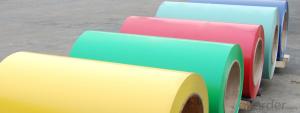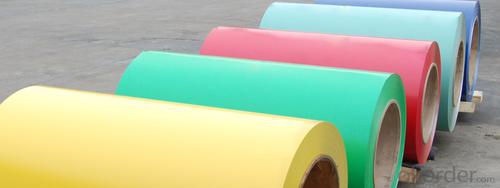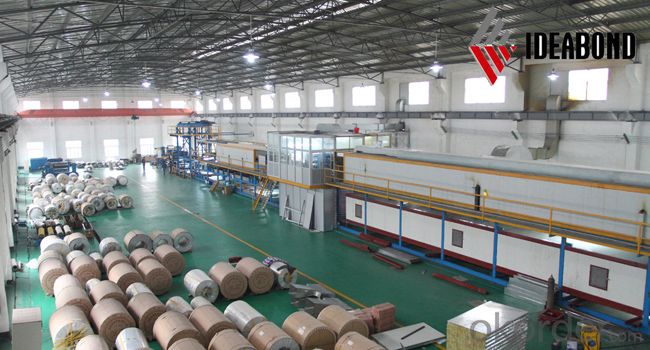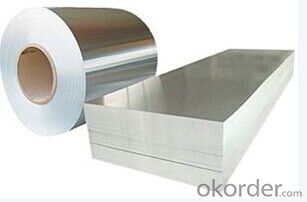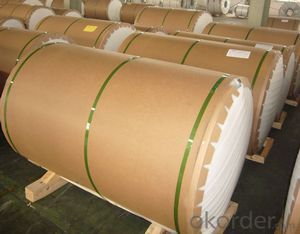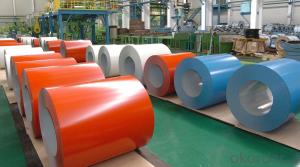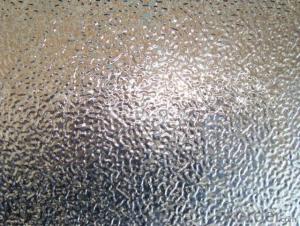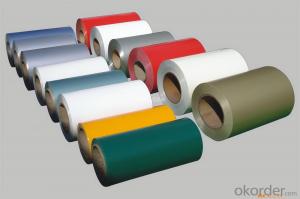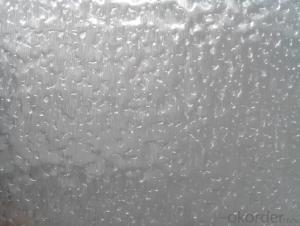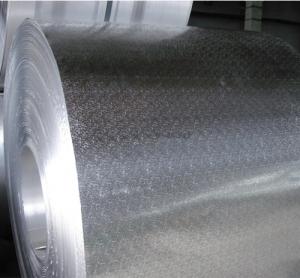Aluminum Coil Wisconsin AA5083 1.5mm Coated Stucco Embossed Aluminum Sheet
- Loading Port:
- Shanghai
- Payment Terms:
- TT OR LC
- Min Order Qty:
- 20 m.t.
- Supply Capability:
- 800000 m.t./month
OKorder Service Pledge
Quality Product, Order Online Tracking, Timely Delivery
OKorder Financial Service
Credit Rating, Credit Services, Credit Purchasing
You Might Also Like
supply Mill-finished / coated aluminum sheet/ coil:
Alloy: AA1050,1060,1100,1200,2024,3003,3304,3005,3015,5052,5086,5754,5083,6061,7050,7475,8011, etc
Temper: O, H14/16/18/22/24/32/ H112/H321/T6,T851,T7451,T7351, etc
Thickness: 0.02mm—20mm
Width: 100mm—2000mm (Can be slitted)
Notice: PE coating / PVDF coating / Embossment can be done if required.
- Q: What are the potential applications of embossed aluminum coils?
- The unique properties and versatility of embossed aluminum coils make them suitable for a wide range of potential applications. These coils can be used in various industries, including architecture, packaging, heat transfer, automotive, electrical, and furniture. In architecture, embossed aluminum coils are commonly utilized for decorative purposes in both interior and exterior design applications. They can enhance the aesthetic appeal of spaces by being used for wall cladding, ceiling panels, decorative facades, and other decorative elements. The embossed patterns on the coils provide visually appealing texture and depth to surfaces. The packaging industry also heavily relies on embossed aluminum coils. These coils are often employed in the manufacturing of packaging materials, such as cans, boxes, lids, and closures. The embossed patterns on the coils not only enhance the visual appeal of the packaging but also provide additional strength and rigidity, making it more durable and resistant to damage. Heat transfer applications also benefit from embossed aluminum coils. These coils are utilized in heat exchangers, evaporators, condensers, and other heat transfer equipment. The embossed patterns on the coils create turbulence in fluid flow, increasing the efficiency of heat transfer. In the automotive industry, embossed aluminum coils find applications in the manufacturing of car body panels, trims, and decorative elements. The embossed patterns on the coils can give vehicles a unique and stylish appearance, setting them apart from others. The electrical industry also utilizes embossed aluminum coils for various applications. These coils are used in the manufacturing of electrical enclosures, switchboards, and control panels. The embossed patterns on the coils enhance the structural integrity and provide better protection against external factors, such as moisture, dust, and corrosion. Lastly, the furniture industry makes use of embossed aluminum coils. These coils are employed in the manufacturing of furniture components, such as table tops, cabinet doors, and decorative trims. The embossed patterns on the coils add a touch of elegance and sophistication to the furniture, making it visually appealing. Overall, embossed aluminum coils have a wide range of potential applications due to their unique properties and versatility. They are favored in industries where aesthetics, strength, and durability are crucial factors.
- Q: How are aluminum coils protected against dust and dirt during storage?
- Aluminum coils are typically protected against dust and dirt during storage by being wrapped in a protective covering, such as plastic or shrink wrap. This helps to prevent any contaminants from settling on the surface of the coils and potentially causing damage or corrosion. Additionally, storing the coils in a clean and controlled environment, such as a warehouse or storage facility, further reduces the risk of dust and dirt accumulation.
- Q: What are the different coil coating options available for aluminum coils?
- There are several coil coating options available for aluminum coils, including polyester, polyurethane, acrylic, PVDF (Polyvinylidene Fluoride), and epoxy coatings. These coatings provide various levels of durability, corrosion resistance, color retention, and flexibility, making them suitable for different applications and environments.
- Q: Can aluminum coils be painted for custom designs?
- It is indeed possible to paint aluminum coils to achieve personalized designs. The act of painting the coils opens up a world of limitless options for customization and aesthetic appeal. Various colors, patterns, and designs can be applied to the coils, catering to individual tastes and needs. To complete the painting process, the surface must first be cleaned, followed by the application of a primer and the desired paint or coating. Through this method, one can create distinctive and captivating custom designs suitable for a wide array of purposes, including architectural elements, signage, automotive components, and more. Moreover, the paint not only safeguards the aluminum from corrosion but also enhances its durability.
- Q: Can aluminum coils be used for electrical enclosures?
- Yes, aluminum coils can be used for electrical enclosures. Aluminum is a lightweight and durable material that provides excellent electrical conductivity and heat dissipation properties. It also has good corrosion resistance, which makes it suitable for various environmental conditions. Aluminum coils can be easily formed into different shapes and sizes, making them versatile for enclosure designs. Additionally, aluminum is a cost-effective option compared to other metals like stainless steel. However, it is important to ensure proper insulation and grounding when using aluminum coils for electrical enclosures to prevent any electrical hazards.
- Q: What exactly happens in the reaction involving powdered aluminum and crushed iodine? I know that adding a few drops of water produces a lot of purple smoke and that it will flare up but what is the chemistry involved? And also, I know that the white residual left in the cup is Al2I6 but why is it acidic when water is added to it? It has a pH of between 1 and 2. What is the smoke that is produced and what causes the exothermic reaction?
- iodine is an oxidizer, a good taker of electrons Aluminum is a great loser of electrons you have a redox reaction happening where Al loses electrons to become Al+3 , and Iodine takes electrons to become I-1 iodide since the reaction is forming the most stable material Al2I6, the reaction must be exothermic, when products are more stable than reactants,... the excess energy must be released. it is the release of this heat that evaporates some of the iodine crystals into the purple iodine vapor Al2I6 does a hydrolysis reaction with water: Al2I6 in water -- Al(OH)3 3 HI the byproduct Al(OH)3 is stable not soluble (a very weak base) but the byproduct HI is a very strong acid what is the smoke? upon adding water? could be steam, the purple smoke was iodine vapor
- Q: What are the potential health risks associated with aluminum coils?
- Aluminum coils are commonly used in HVAC systems for their durability and heat transfer properties. While they are generally considered safe, there are potential health risks associated with aluminum coils if certain conditions are not met. One of the primary concerns is the potential for aluminum to leach into the air or water supply. Aluminum is a known neurotoxin, and excessive exposure to it can lead to various health issues, particularly in individuals with pre-existing conditions such as kidney disease or weakened immune systems. However, the amount of aluminum that may leach from coils is typically minimal and unlikely to pose a significant risk to most people. Another potential health risk is related to the accumulation of dust, dirt, and other particles on the aluminum coils. These particles can act as a breeding ground for bacteria, mold, and other allergens, which may negatively affect indoor air quality. If not properly maintained and cleaned, these contaminants can cause respiratory problems, allergies, and even infections in susceptible individuals. Furthermore, aluminum coils can be a source of electromagnetic fields (EMFs) due to the electric currents passing through them. While the health effects of EMF exposure are still a topic of ongoing research, some studies suggest a potential link between high levels of EMFs and certain health conditions, including cancer. However, it is important to note that the levels of EMFs emitted by aluminum coils are generally considered to be within safe limits and unlikely to pose significant health risks. To mitigate these potential health risks, it is crucial to ensure proper maintenance and cleaning of aluminum coils. Regular inspections, professional cleaning, and changing air filters can help prevent the accumulation of contaminants and maintain good indoor air quality. It is also recommended to consult with HVAC professionals to ensure proper installation and maintenance of the coils, minimizing the risk of aluminum leaching or excessive EMF exposure. In conclusion, while there are potential health risks associated with aluminum coils, they are generally considered safe when properly maintained. Taking necessary precautions and following recommended maintenance practices can help minimize any potential health concerns associated with aluminum coils in HVAC systems.
- Q: Can aluminum coils be anodized for enhanced durability?
- Yes, aluminum coils can be anodized to enhance their durability. The anodizing process creates an oxide layer on the surface of the aluminum, making it more resistant to corrosion, wear, and abrasion. This improves the overall lifespan and performance of the coils.
- Q: What is the flexural strength of aluminum coils?
- The flexural strength of aluminum coils varies depending on various factors such as the alloy used, tempering process, and thickness of the coils. Generally, aluminum alloys exhibit good flexural strength, making them suitable for applications where bending or flexing is required. However, it is important to note that the flexural strength of aluminum coils is typically lower than that of steel or other metals. To determine the exact flexural strength of a specific aluminum coil, it is necessary to refer to the manufacturer's specifications or conduct specific tests in accordance with relevant standards.
- Q: Are aluminum coils suitable for electrical transformers?
- Yes, aluminum coils are suitable for electrical transformers. They have several advantages, including lower cost, lighter weight, and better thermal conductivity compared to copper coils. Additionally, aluminum coils have been widely used in power transformers, demonstrating their suitability for this application.
Send your message to us
Aluminum Coil Wisconsin AA5083 1.5mm Coated Stucco Embossed Aluminum Sheet
- Loading Port:
- Shanghai
- Payment Terms:
- TT OR LC
- Min Order Qty:
- 20 m.t.
- Supply Capability:
- 800000 m.t./month
OKorder Service Pledge
Quality Product, Order Online Tracking, Timely Delivery
OKorder Financial Service
Credit Rating, Credit Services, Credit Purchasing
Similar products
Hot products
Hot Searches
Related keywords
